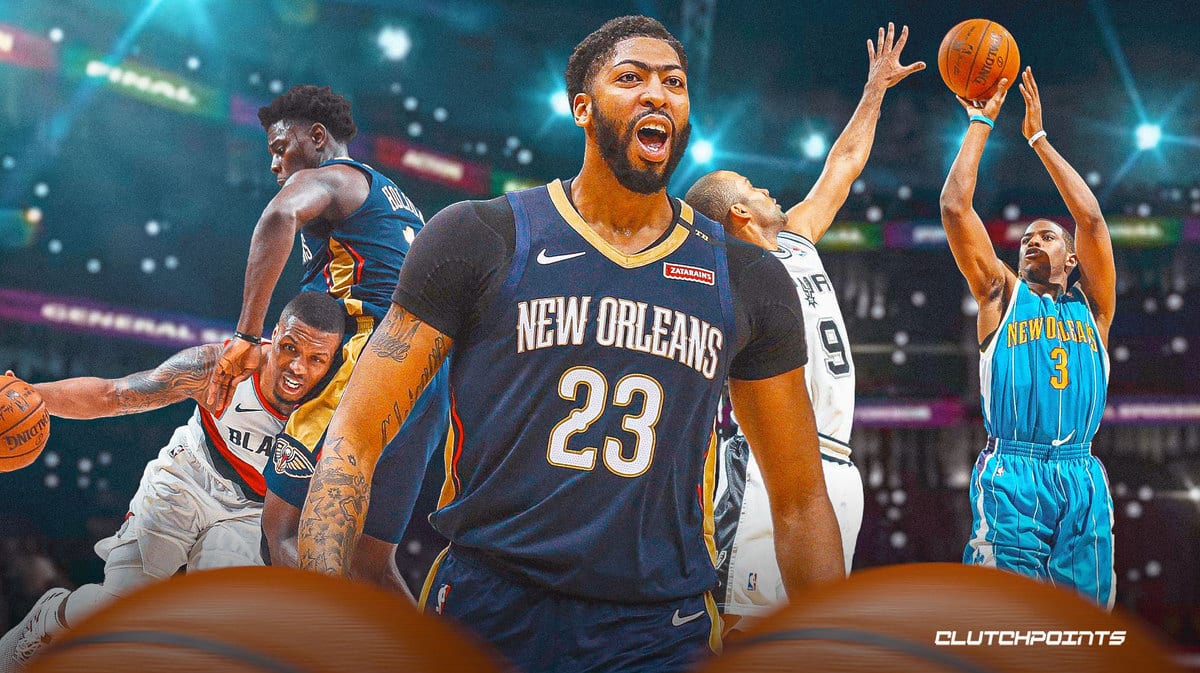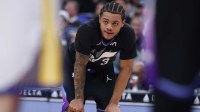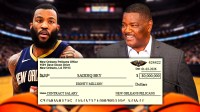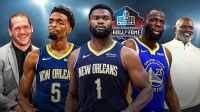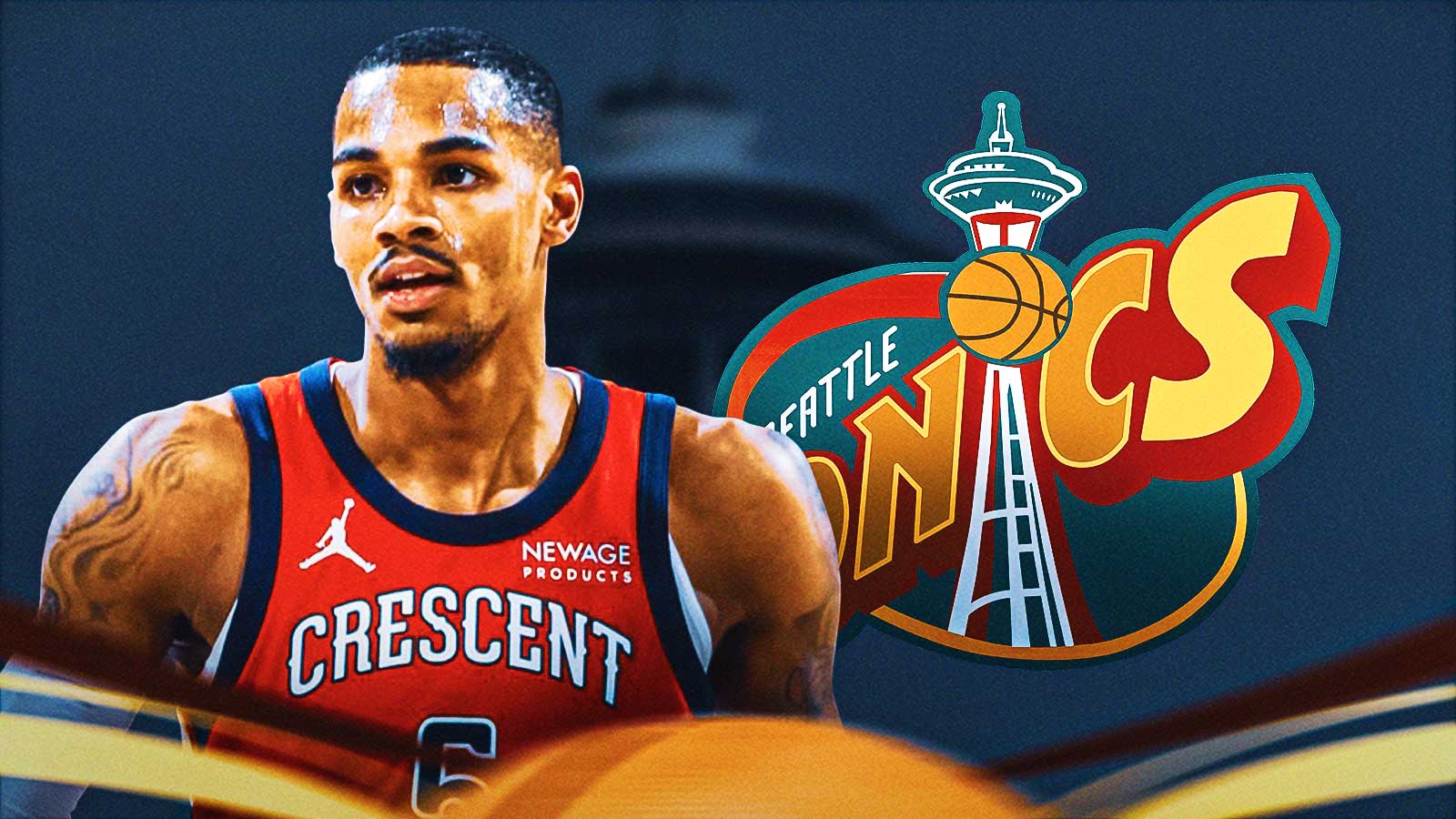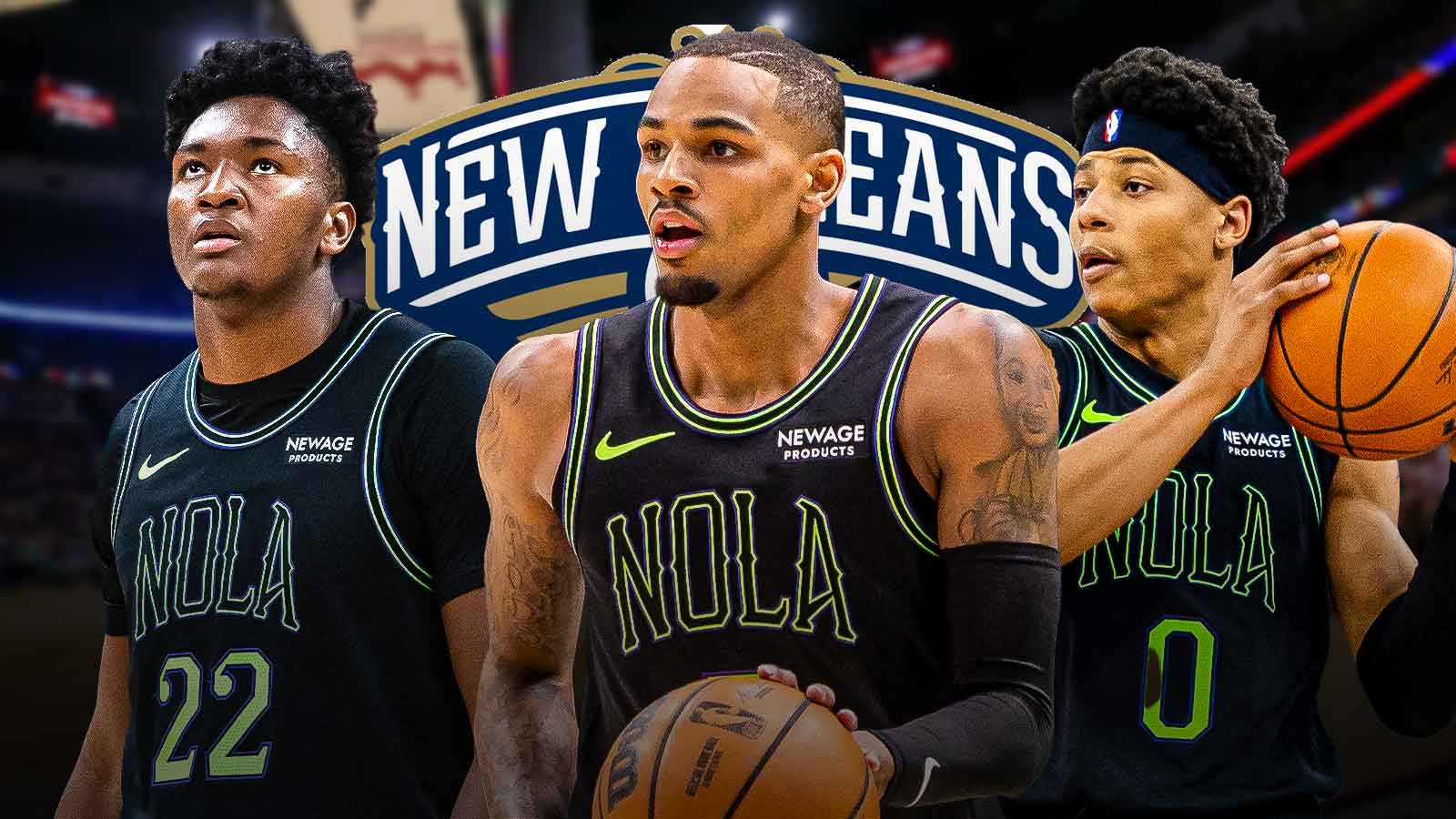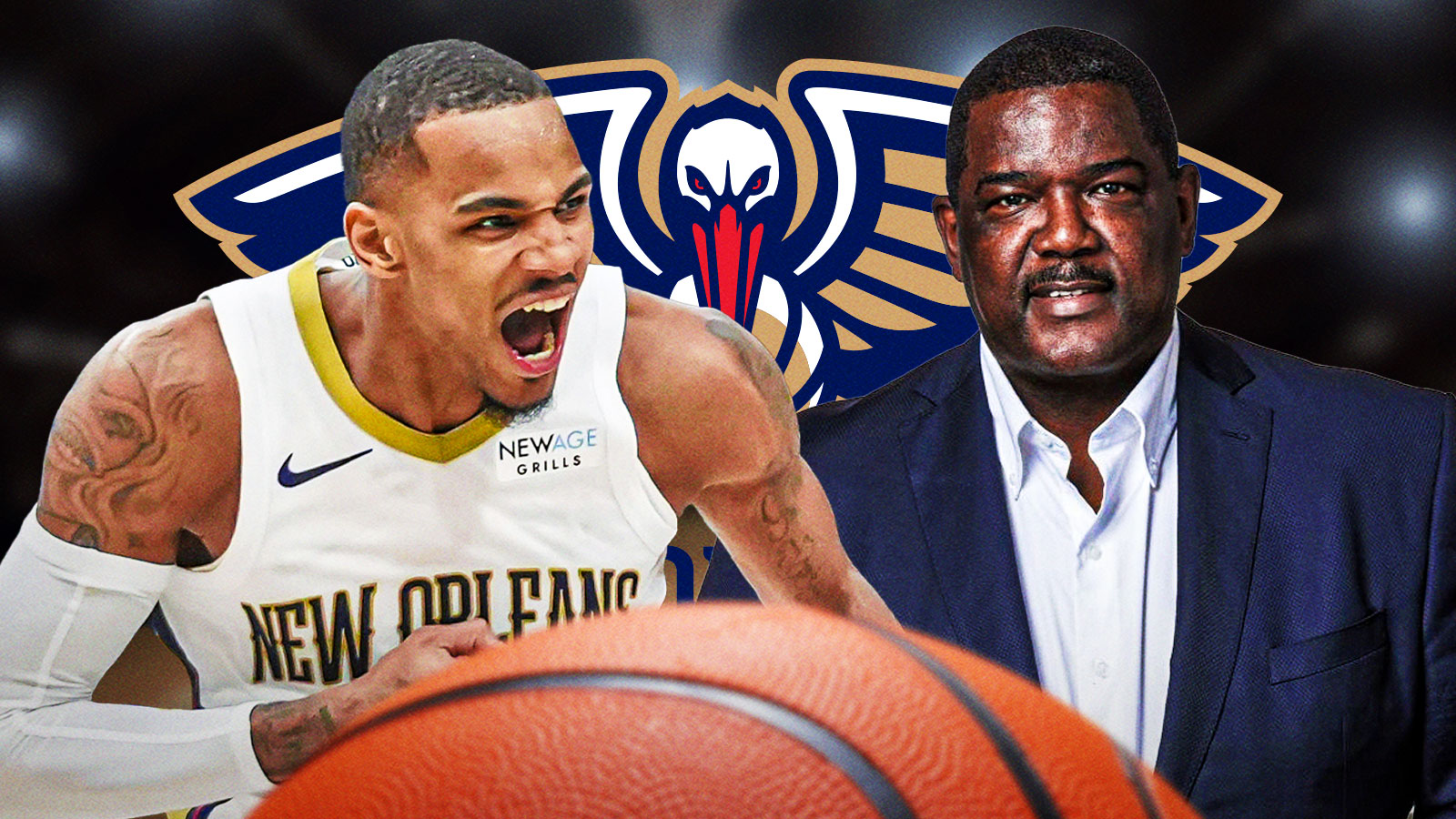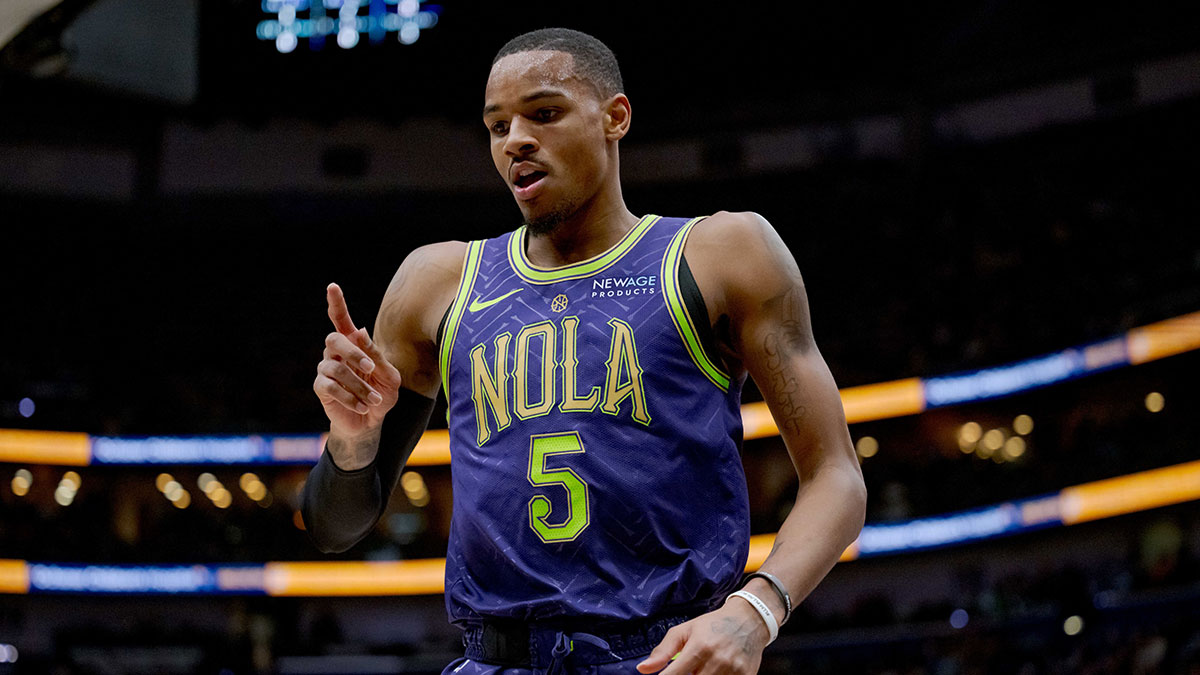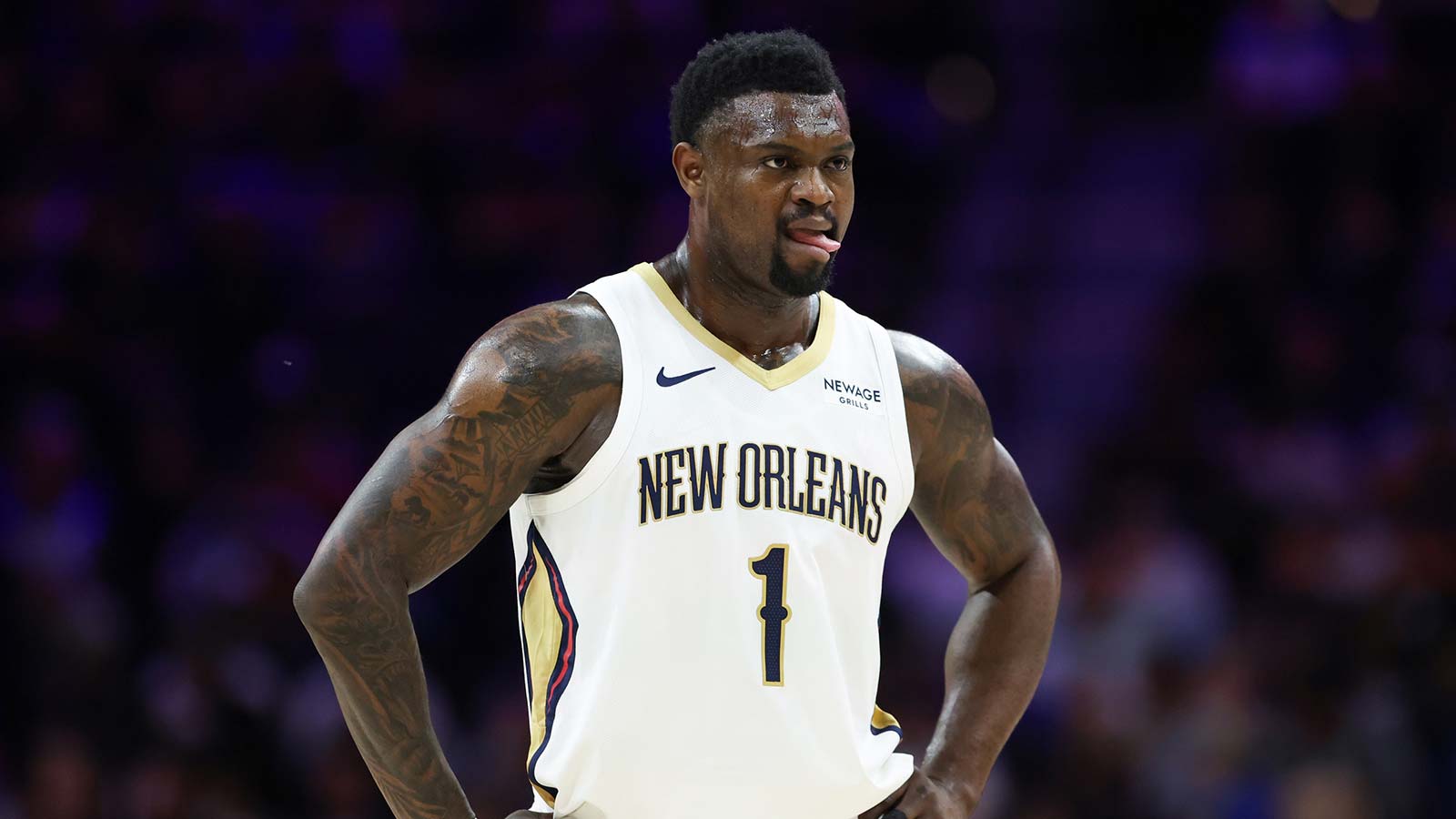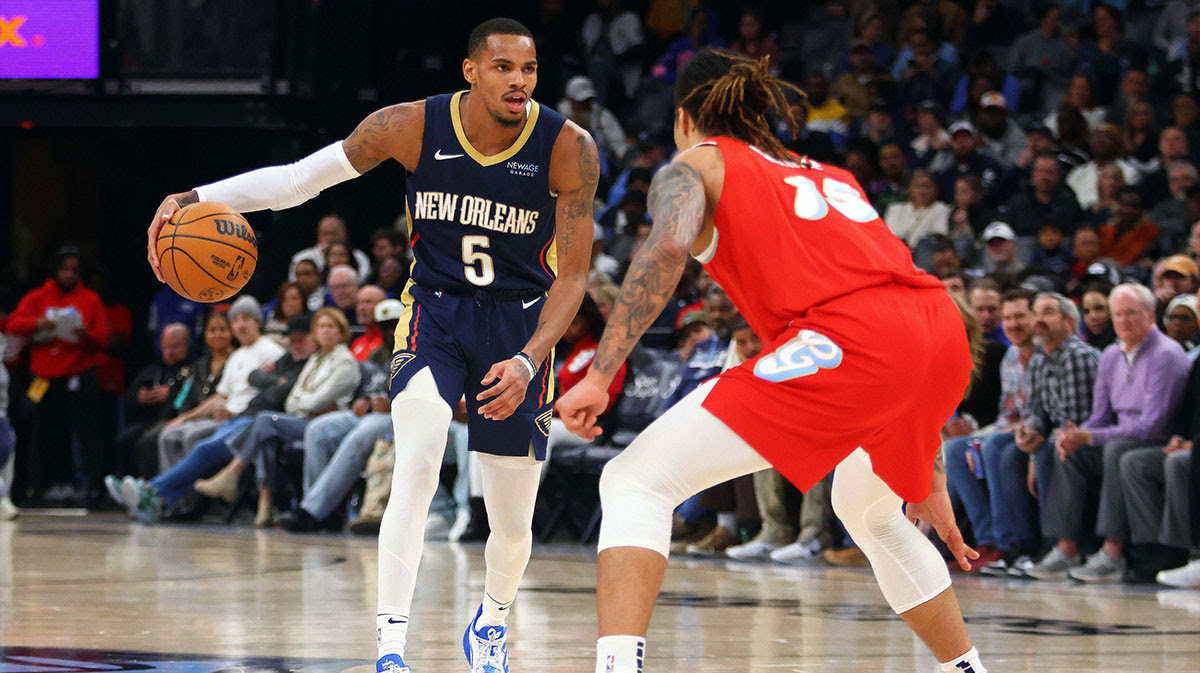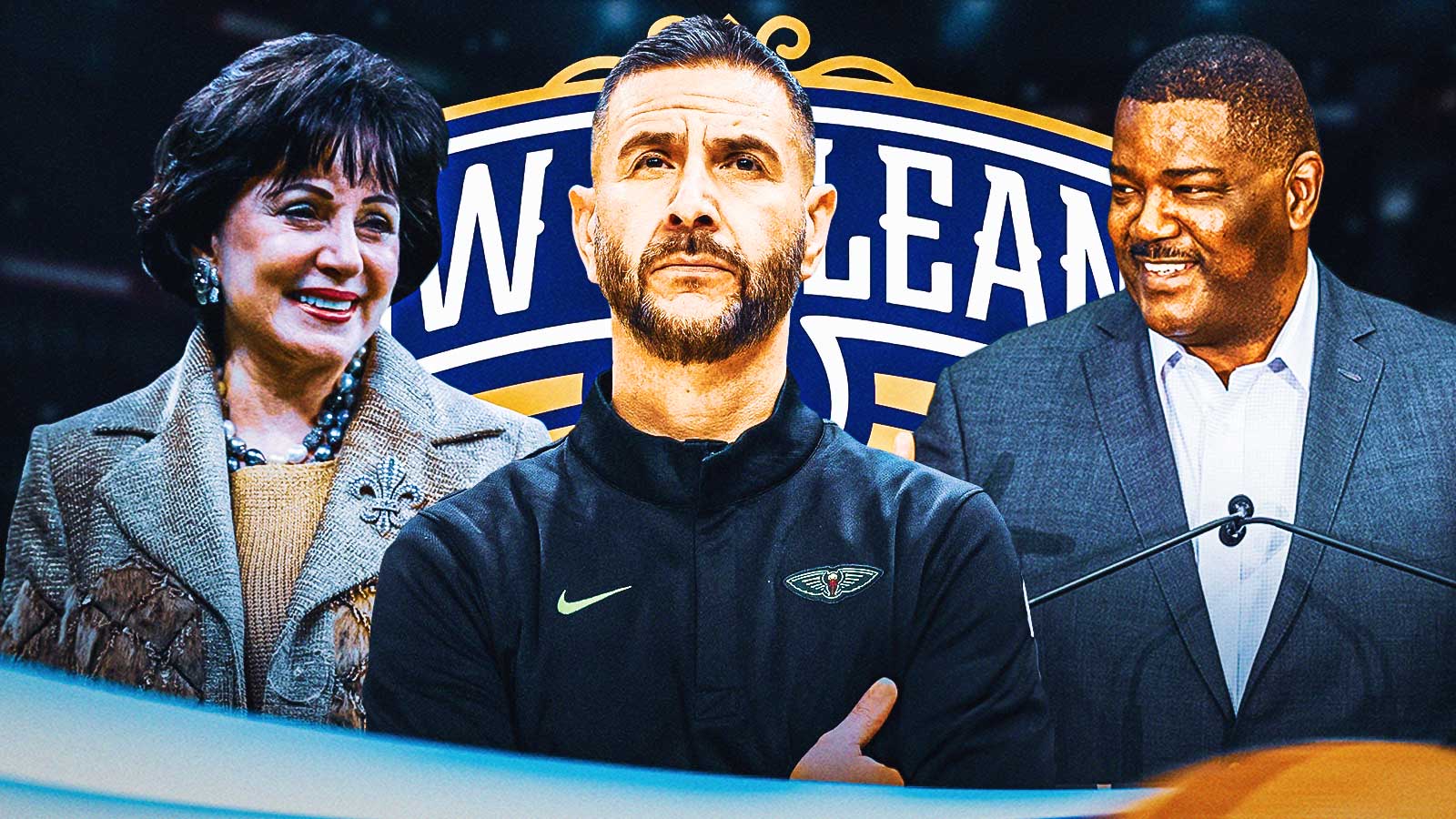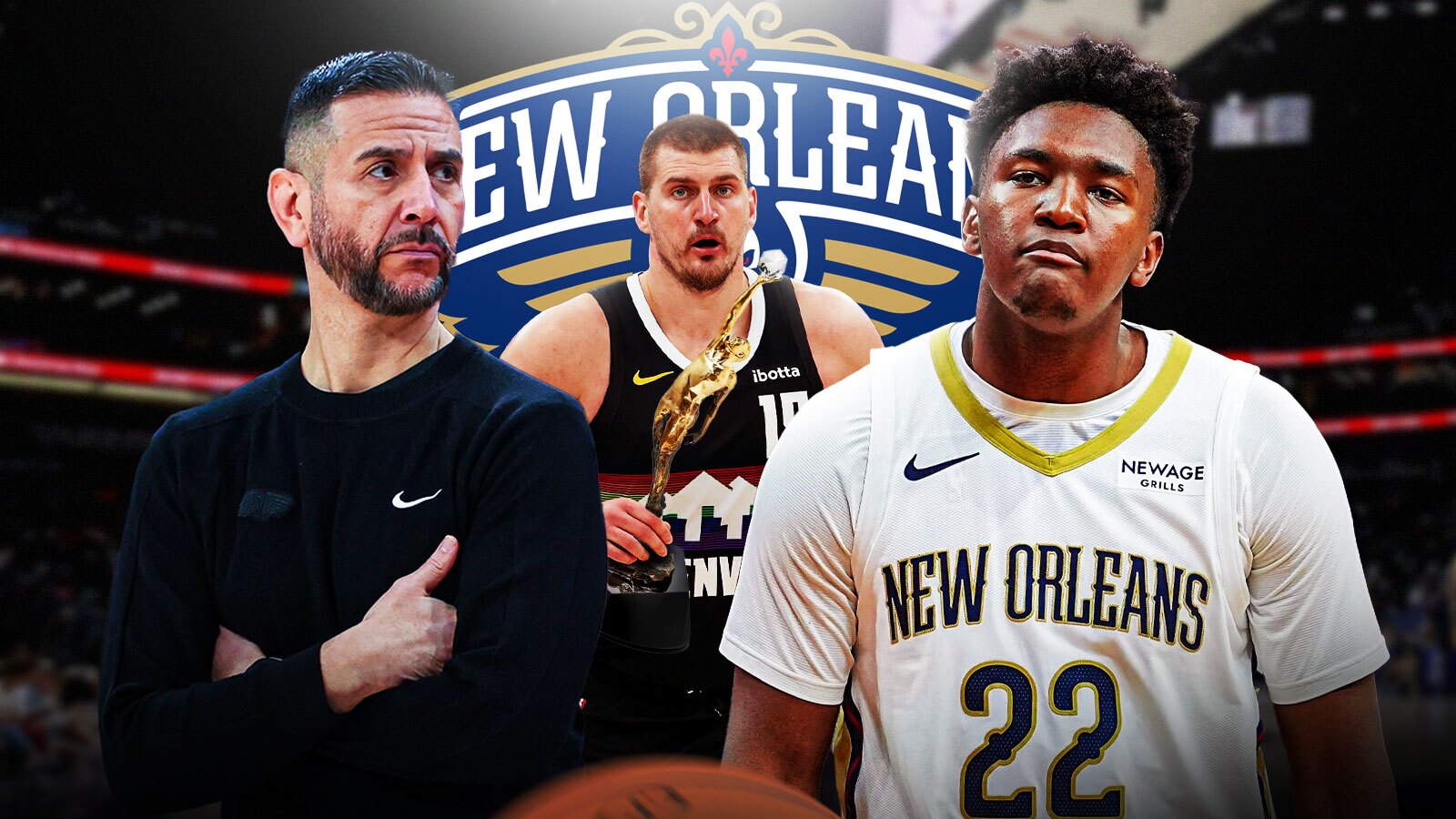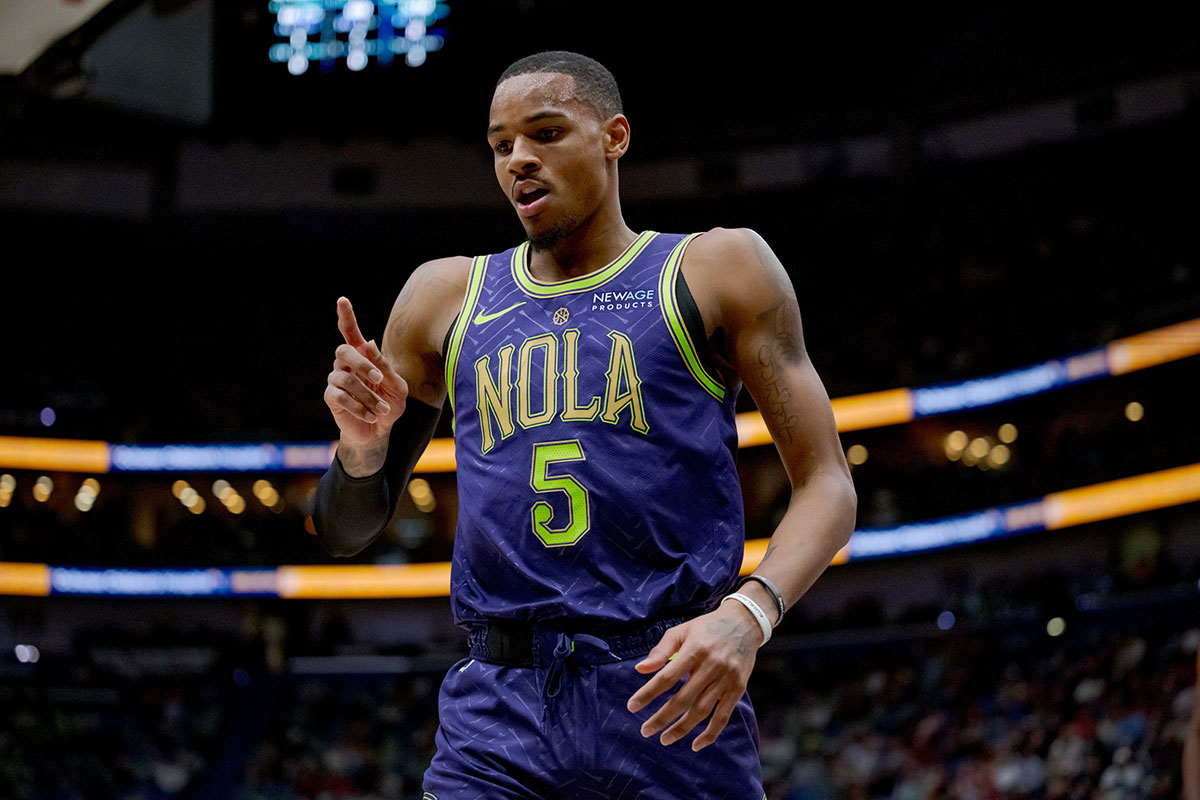Fresh off covering the Minnesota Timberwolves, it's inexplicable to think that there's another franchise in the NBA that'll make writing a 10 greatest teams list more difficult to write. But the New Orleans Pelicans franchise is certainly guilty of that, although that may be due to no fault of their own.
When the Charlotte Bobcats rebranded back into the Hornets in 2014, they were able to claim the Hornets' history in Charlotte as their from the New Orleans franchise, essentially rendering them as the youngest franchise in the NBA with the least history.
Nevertheless, for this exercise, the utmost effort was exerted, scrounging deep into the lore of the Pelicans franchise just to come up with 10 franchises to include on this list. Fans will be hoping that the rest of the Pelicans teams of the 2020s end up being good enough to populate future versions of this list.
Without further ado, here are the 10 greatest teams in Pelicans history.
10. 2020-21
What made writing this list a difficult task was that in the Pelicans' 21 years of history thus far, only eight teams made the postseason. So there was always going to be two non-playoff teams to make this list, as difficult as that may be to stomach. And one of those teams so happens to be the 2020-21 version of the team.
In terms of winning percentage, the 2021 Pelicans don't have the best among the non-playoff teams in franchise history. In fact, there are four other Pelicans teams to miss the playoffs that posted a better win rate (2006, 2007, 2010, 2023). But the 2021 team posted a better net rating than three of those teams, so that was the squad that made the cut on this list.
The 2021 Pelicans won just 31 (of 72) regular season games, missing the opportunity to compete in the play-in tournament by just two games. They had a healthy Zion Williamson, an oxymoronic phrase these days, for most of the year. He played in 62 games, averaging 27-7-4 on 61 percent shooting from the field, and he combined with Brandon Ingram to form one of the most exciting young duos in the NBA. The Pels simply did not have the requisite supporting cast to field a winning team.
9. 2003-04
The Hornets teams of the early-2000s were plucky and gritty, with underrated pieces such as early career Baron Davis, Jamal Mashburn, and PJ Brown. But by 2004, it was clear that the Hornets were in decline, just two years into their move from Charlotte to the Big Easy. This season marked their 12th straight (dating back to its Charlotte history) of finishing with a record of .500 or better, but they have yet to get over the hump. And Mashburn's serious knee injury only served to make things even more difficult for them.
Even then, due to how putrid the Eastern Conference was, the Hornets finished fifth in the Eastern Conference, facing rookie Dwyane Wade and the upstart Miami Heat in the first round of the playoffs. Alas, they ended up losing in seven games — effectively ending this era of Hornets basketball when they traded Davis shortly into the following season en route to three straight years of terrible to mediocre basketball.
8. 2022-23
The Pelicans' 2022-23 season began on such a high note. For the first two and a half months of the season, the Pelicans sat near the top of the Western Conference, with Zion Williamson back in top form and the rest of the team clicking. Never mind that Brandon Ingram was injured during this stretch, for the Pels were well on their way to cementing themselves among the league's top contending teams.
However, Pelicans fans know the story by now. Williamson's injury destroyed the Pelicans' season. In fact, Ingram needed to play out of his mind to end the season just so his team could have a shot at making the playoffs via the play-in tournament. And make no mistake about it, the Pels had plenty of chances to do so. If only they took care of business against the Minnesota Timberwolves so they wouldn't have had to win two play-in games just to make the playoffs, then perhaps their season outlook could have been a lot better.
At the end of the day, the Pelicans were unable to replicate the magic that they had in 2022. Facing the Oklahoma City Thunder in the 9/10 matchup, the Pels faltered in crunch time — ending their season on a crushing note.
7. 2021-22
The story of the 2022 Pelicans runs in contrast to that of the 2023 team's. During the 2021-22 season, with head coach Willie Green in his first year at the helm, the Pelicans started off terribly, winning just four of their 20 games. But since then, the team went 32-26 — not terrible, but enough to sneak into the play-in tournament as the ninth-best team in the Western Conference.
Despite not having Zion Williamson, who missed the entire season due to a foot injury, the Pelicans were able to right the ship, thanks to contributions from the unheralded defensive-minded duo of Herb Jones and Jose Alvarado, as well as the steady hand of Jonas Valanciunas.
Trading for CJ McCollum in the middle of the season was a helpful move as well, as it reduced the burden Brandon Ingram had to carry on offense on a nightly basis. To that end, McCollum was a godsend for the team as they conquered the play-in gauntlet, and gave the first-seeded Phoenix Suns a hell of a battle in the first round, taking two games off a team that many thought was one of the favorites to win a title last year.
6. 2014-15
The Pelicans seemed to be in a bit of a rush when it came to building a proper squad around Anthony Davis. In just his second season, the Pels front office acquired Jrue Holiday and Tyreke Evans to bolster the Davis, Eric Gordon, and Ryan Anderson-led core, and when that wasn't enough, the team received Omer Asik in a sign-and-trade with the Houston Rockets to allow AD to play in his more comfortable position at the four.
At the very least, it worked; the Pelicans improved their win total by 11 from the previous season. They even sneaked into the postseason, stealing away one year of playoff contention from Kevin Durant, Russell Westbrook, and the Oklahoma City Thunder by virtue of owning the tiebreaker thanks to Davis' incredible double-clutch triple on February 6, 2015.
But being the eight-seed that year was no reward, as they had to face the 67-win Golden State Warriors in the first round of the playoffs. Anthony Davis was a monster, but even he wasn't enough for the team to overcome what was such a well-oiled championship-winning machine.
5. 2010-11
The last year of Chris Paul's short yet fruitful stint in the Big Easy, the 2011 Hornets had one last shot to show CP3 that there was a winning future in New Orleans. But the 2011 Hornets didn't exactly perform like championship contenders, leading shortly to Paul's trade request and eventual trade to the Los Angeles Clippers (not to mention his vetoed deal to the Los Angeles Lakers).
The Hornets won just 46 games this year, with Paul not exactly back to being his best after undergoing left knee surgery in early 2010. Paul averaged just 15.9 points and 9.8 assists on 46.3 percent shooting from the field — worse numbers than he put up the previous year — and the team didn't have the requisite top-end talent to help weather that drop-off.
This team ended up losing in the first round to a Lakers team that was gunning for a three-peat, marking the end of the CP3 era.
4. 2002-03
A team whose identity was built on defensive integrity and grit, the 2003 Hornets posted the seventh-best defensive rating in the league. PJ Brown and Jamaal Magloire combined to form a stifling interior defensive duo, while Jamal Mashburn, Baron Davis, and David Wesley took care of the scoring responsibilities.
New Orleans won 47 games in 2003, earning them the fifth seed in the Eastern Conference. But as what has always been said around these parts, having the best player in a playoff series always matters. The Hornets faced a Philadelphia 76ers team with Allen Iverson still playing at or near the top of his game, exiting the playoffs after just six games.
3. 2008-09
Chris Paul was a beast in 2009, averaging 22.8 points, 11.0 assists, and 2.8 steals. He picked up where he left off in 2008, giving the Hornets one of the ten-best players in the association — always a good starting point in the championship roster building process. But the Hornets' supporting cast was noticeably worse in 2009. They missed Morris Peterson, who was never the same player after suffering injuries, while Peja Stojakovic and Tyson Chandler suffered drop-offs in production as well.
They won just 49 games, which was good for just the seventh spot in a loaded Western Conference. That put them in a tough matchup against a Carmelo Anthony and Chauncey Billups partnership for the Denver Nuggets that was firing on all cylinders. Yet another strong season for Paul ended up in playoff disappointment, so it wasn't really that big of a surprise that he'd ask out sooner than later.
2. 2017-18
The Pelicans may have made the postseason in 2015, but the years that followed weren't promising at all. Despite having Anthony Davis playing at a top-ten level, the Pelicans missed the playoffs by a considerable margin in 2016 and 2017 — forcing them to take a huge swing and trade for DeMarcus Cousins.
It didn't pay dividends at first, but during the 2017-18 season, something clicked for the Pelicans. Davis and Cousins were an elite inside-outside duo, while Jrue Holiday took his game up a level as he played more of an off-ball role alongside Rajon Rondo. Even when Cousins went down with a torn Achilles (which was a downright shame as he was a beast during this campaign), the Pelicans had Nikola Mirotic to fill in the void.
Despite being just the sixth-seed in the Western Conference, the Pelicans dismantled the Portland Trail Blazers in the first round of the playoffs. The Pels took them apart piece by piece as Anthony Davis and Jrue Holiday played the series of their lives to that point. That sweep still lives long in the memory of Blazers fans due to how surprising it was. They may have lost in the second round to the eventual champion Warriors, but the 2018 Pelicans stands out as one of the most memorable and iconic iterations of a franchise that doesn't exactly have that much history.
1. 2007-08
This was the only team in franchise history that could have conceivably made the top spot on this list. The 2008 Hornets won 56 games, winning the Southwest Division over three other capable teams in the San Antonio Spurs, Houston Rockets, and Dallas Mavericks. They had a healthy net rating of +5.8, so it's not like they fluked into this achievement.
After taking care of business against the Mavs in Round 1, the Hornets ran into the Spurs in Round 2 — a humongous test for any team looking to make that leap into becoming true title contenders. And New Orleans gave San Antonio the work, taking a 3-2 series lead and giving them two chances to advance to the Western Conference Finals for the first time.
But the Spurs had the championship resolve the Hornets lacked. Behind Manu Ginobili's clutch elimination game performances, the Spurs handed the Hornets the end of its best-ever season in franchise history.

